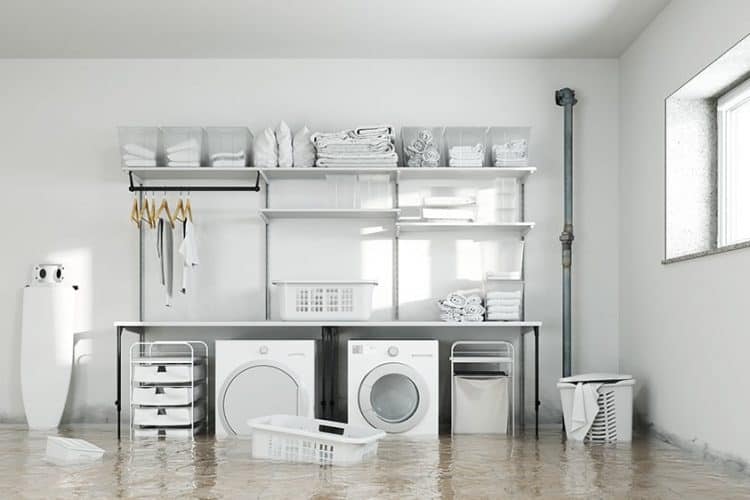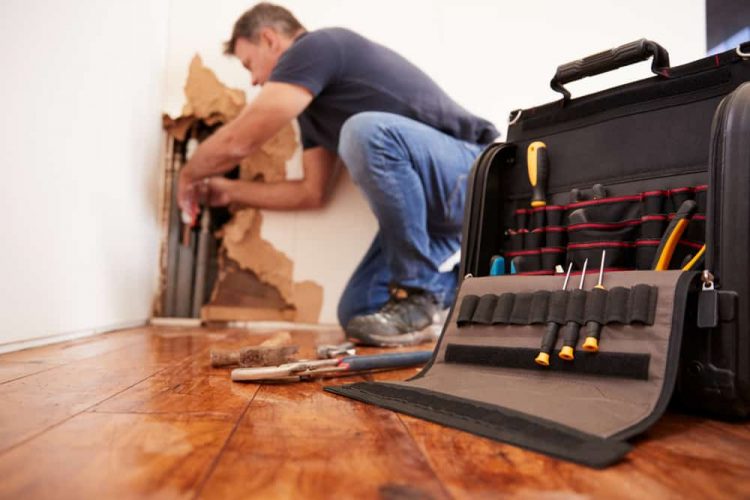Winter brings the beautiful snow-covered landscape, but it also brings the bitter cold weather that can cause the water in your pipes to freeze and potentially burst. The plumbing system in your home is the unseen hero of any property—but when a pipe freezes, it can burst and wreak havoc on your home or business.
Burst pipes are one of the most common causes of property damage during the winter. In fact, more than 250,000 families and homes in the United States experience frozen and/or burst pipes each year. The best way to prevent burst pipes is to stop them from freezing in the first place. Fortunately, all it takes is a little preparation. Here are the steps to prevent pipes from freezing when the temperature drops!
Ice Cold Fact: Frozen pipes can occur in both cold and warm climates. Homes in warmer climates are typically more vulnerable to frozen pipes because the pipes might not be properly insulated to protect them against such cold temperatures.
Beat the Freeze: Pro Tips on How to Prevent Frozen Pipes
- Keep the garage doors closed. If you have water supply lines in the garage, this will help maintain maximum heat to prevent them from freezing.
- Open your kitchen and bathroom cabinet doors. Pipes are usually located in the cabinets. When the temperature drops, especially during extreme cold spells, this will allow the warm air to circulate through your cabinets to prevent the pipes from freezing.
- Keep the water from the faucet running. Even a few drops of water running through pipes may help prevent them from freezing. More importantly, it relieves excessive pressure, which is key for avoiding burst pipes in the event that they do
- Going away? If you are going away during the winter, you might be tempted to turn the heat off altogether. If you do this though, there’s a chance your pipes will freeze. Leave the heat on in your home and set the temperature no lower than 55° F.
- Winterize your pipes. Wrap your pipes to keep them from freezing. To wrap your pipes, you can use insulation sleeves, wrapping, slip-on foam pipe insulation, or self-regulating heat tape. You can find these materials at hardware stores, plumbing supply stores, or insulation dealers.
Ice Cold Fact: Did you know water expands 10% when it freezes? Frozen pipes can prevent water flow throughout your home, which causes pressure to increase inside the pipes. This pressure buildup is what can eventually cause pipes to burst, leading to potential flooding and water damage.
Signs of Frozen Pipes:
If you’re worried that your pipes may freeze in the winter, here are some warning signs to watch for. If you experience any of these, contact a plumber so that they can intervene before a pipe bursts and your problem becomes more serious.
- Turning on a faucet and little to no water trickling out
- Strange noises when using water, like bubbling or whistling sounds
- Odors coming from drains or faucets
- Frost or condensation on pipes
What to do if your pipes freeze.
If you notice or suspect a frozen pipe, the safest thing to do is turn off your water at the main shut-off valve and call a plumber. Before you begin to think about thawing out your pipes, you’ll also want to inspect all accessible pipes for other frozen or bulging sections and check surrounding areas for standing water or signs of water damage. This helps to identify any pipes that may have burst already and minimizes potential damage once the frozen water begins flowing again.
When it comes to thawing frozen pipes, consulting a licensed plumber is the safest route to go because plumbing systems are complex and the sections likely to freeze are not always the sections likely to burst—and both can occur in hidden or inaccessible areas! A plumber will also be able to recommend solutions for preventing your pipes from freezing and bursting again in the future.
If you do attempt to thaw frozen pipes yourself (after you’ve turned off your water and made sure none have burst), slowly apply heat to the frozen segment using a hairdryer, heating pad, or towels soaked in hot water. Never use an open flame or other sources of extreme heat because these can damage the pipes or start a fire. Start at the faucet end and keep the faucet open during the thawing process. If water still isn’t flowing more than a trickle after thawing the noticeably frozen section(s), it’s time to call a plumber.
Preventing your pipes from freezing is the best way to avoid a burst pipe in the winter, but it’s not foolproof. Winter weather can be unpredictable, and pipes can burst unexpectedly. If you experience water damage due to burst pipes (or any other cause), the experts at 1-800 WATER DAMAGE can help. Our certified technicians work around the clock to respond to water damage emergencies and provide top quality solutions to restore your home or business after a loss. Contact us today if we can help.



